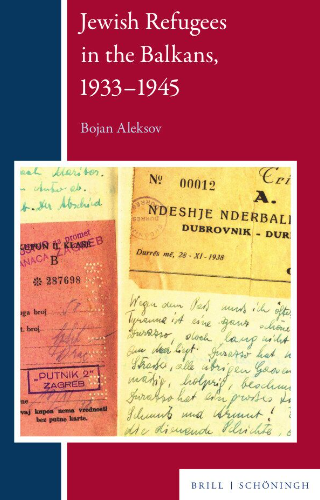 | Bojan Aleksov, ‘Jewish Refugees in the Balkans, 1933-1945’, Brill, 2023The Balkans provided the escape route for tens of thousands of German Jews, and remained a place of refuge until the Nazis brutally shut it off with the mass murder of Jewish refugees on the so-called Kladovo transport starting in September 1941, which can be considered as the beginning of the Holocaust in Europe. Responding to publications about the Western European and American exile experience of the Jews after 1933, this book offers comparative insights into the less trodden paths of the persecuted, illuminating the cultural and political context of the Balkan host countries, the response of local Jewish communities, and the reactions of common people and assorted criminals. |
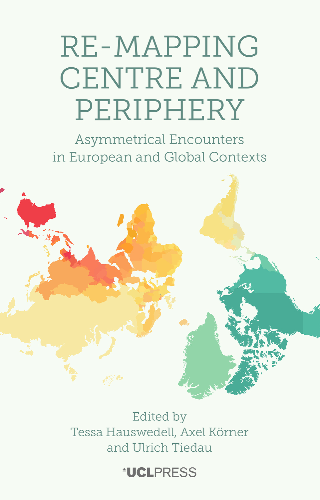 | Edited by Tessa Hauswedell, Axel Körner, and Ulrich Tiedau, ‘Re-Mapping Centre and Periphery: Asymmetrical Encounters in European and Global Contexts’, UCL Press, 2019Historians often assume a one-directional transmission of knowledge and ideas, leading to the establishment of spatial hierarchies defined as centres and peripheries. In recent decades, transnational and global history have contributed to a more inclusive understanding of intellectual and cultural exchanges that profoundly challenged the ways in which we draw our mental maps. |
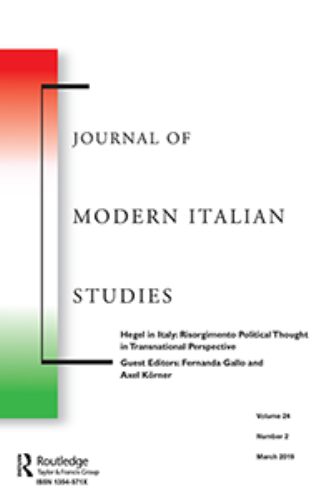 | Edited by Axel Körner and Fernanda Gallo, ‘Journal of Modern Italian Studies - Special Issue: Hegel in Italy. Risorgimento Political Thought in Transnational Perspective’, Taylor and Francis Online, 2019This special issue of the Journal of Modern Italian studies rethinks Italy’s political tradition, as well as its philosophical undercurrents, during the Risorgimento. As it highlights their inherently transnational nature, this issue places particular emphasis on the role of Italian Hegelianism in shaping the emergence of the modern Italian nation-state. |
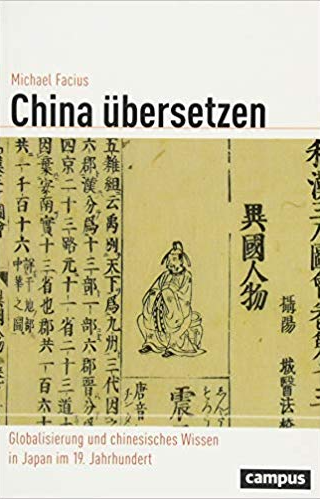 | Michael Facius, ‘China Übersetzen. Globalisierung und chinesisches Wissen in Japan im 19. Jahrhunderts’ [Translating China. Globalisation and Chinese Knowledge in Nineteenth-Century Japan], Academia, 2017Japan's interactions with the traditions, texts and ideas of Chinese knowledge shaped the country's view of the world and its response to nineteenth-century globalisation. At the same time, these traditions were themselves affected by processes of global integration. From early modern Confucianism to imperial Sinology, from poetry to linguistics, this study for the first time comprehensively explores the transformation of a field of knowledge which has often been neglected in favour of a focus on the influence of "Western science", but which is indispensable to a fuller understanding of Japanese history. |
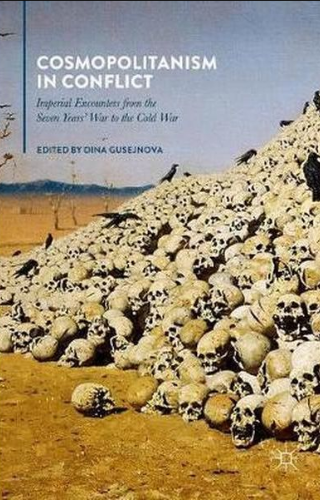 | Edited by Dina Gusejnova, ‘Cosmopolitanism in Conflict. Imperial Encounters from the Seven Years' War to the Cold War’, Palgrave Macmillan, 2017A new book features the results of one of the research projects based at the UCL Centre for Transnational History. Dina Gusejnova, now a lecturer at the History Department at Sheffield, has been a Leverhulme Early Career Fellow at the CTH and edited for Palgrave Macmillan Cosmopolitanism in Conflict. Imperial Encounters from the Seven Years' War to the Cold War. Along with Dina, who wrote two chapters for this volume, Stephen Conway and Axel Körner are among its contributors, both based in the UCL History Department. |
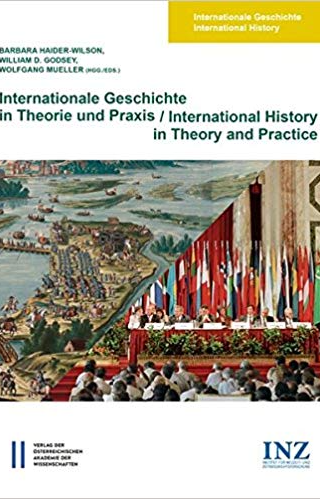 | Axel Körner, ‘Transnational History: Identities, Structures, States, in Barbara Haider-Wilson, William D. Godsey, Wolfgang Mueller, eds. International History in Theory and Praxis’, Sonderdruck, 2017Over the past twenty-five years, some of the most exciting and innovative works of historical research have emerged in connection with debates on transnational approaches to history. International History in particular has been affected by a transnational turn, leading to a significant reorientation of themes and research questions, as well as to the identification of new historical agents impacting upon existing relations between states. As a consequence, transnational historians have carved deeply into the traditional territory of international history, while at the same time transcending the discipline's conventional focus on connections between states. |
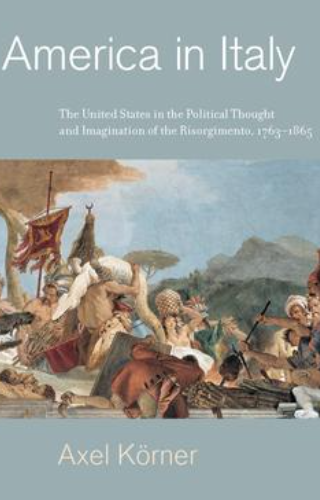 | Axel Körner, ‘America in Italy: The United States in the Political Thought and Imagination of the Risorgimento, 1763-1865’, Princeton University Press, 2017The book investigates the influence of the American political experience on the imagination of Italian political thinkers between the late XVIII century and the 1861 Unification of Italy. Looking at the writings of local political authors, Axel Körner illustrates how concepts borrowed from Montesquieu, Rousseau and Vico were adopted in order to evaluate what Italians discovered about America. As a result, this book provides a very compelling analysis of the ways in which Italian political thought during the Risorgimento was shaped by debates on the American Revolution and the US Constitution. |
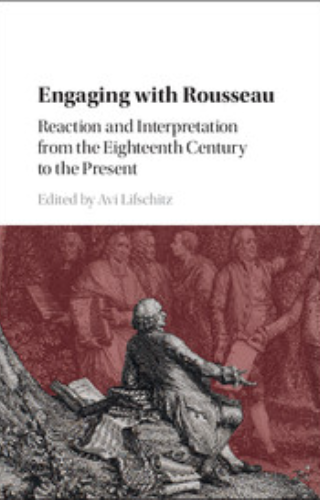 | Edited by Avi Lifschitz, ‘Engaging with Rousseau: Reaction and Interpretation from the Eighteenth Century to the Present’, Cambridge University Press, 2016Jean-Jacques Rousseau has been cast as a champion of the Enlightenment and a beacon of Romanticism, a father figure of radical revolutionaries and totalitarian dictators alike, an inventor of the modern notion of the self and an advocate of stern ancient republicanism. This book treats his writings as an enduring topic of debate, examining the diverse responses they have attracted from the Enlightenment to the present. Such notions as the general will were, for example, refracted through very different prisms during the struggle for independence in Latin America and in social conflicts in Eastern Europe, or by thinkers from Kant to contemporary political theorists. |
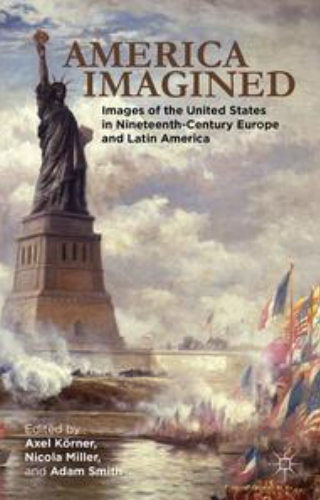 | Edited by Axel Körner, Nicola Miller and Adam Smith, ‘America Imagined: Explaining the United States in Nineteenth-Century Europe and Latin America’, Palgrave Macmillan, 2012Why has "America" - that is, the United States of America - become so much more than simply a place in the imagination of so many people around the world? In both Europe and Latin America, the United States has often been a site of multiple possible futures, a screen onto which could be projected utopian dreams and dystopian nightmares. Whether castigated as a threat to civilized order or championed as a promise of earthly paradise, America has invariably been treated as a cipher for modernity. It has functioned as an inescapable reference point for both European and Latin American societies, not only as a model of social and political organization - one to reject as much one to emulate - but also as the prime example of a society emerging from a dramatic diversity of cultural and social backgrounds. |
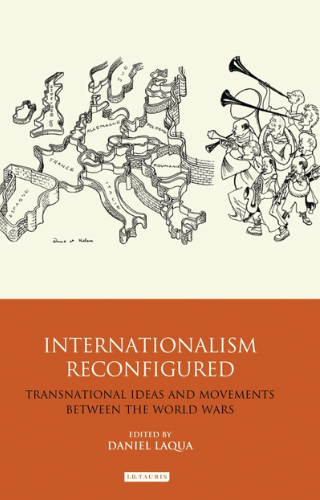 | Edited by Daniel Laqua, ‘Internationalism Reconfigured: Transnational Ideas and Movements between the World Wars’, Bloomsbury Publishing, 2011This book is based on a workshop of the UCL Centre for Transnational History, held in May 2008: 'Interwar Internationalism: Conceptualising Transnational Thought and Action, 1919-1939'. The contributions in this book examine the interplay between political movements, international associations and the League of Nations. The volume comes with an introduction by Patricia Clavin and features chapters by Frank Beyersdorf, Stefan Couperus, Yann Decorzant, Daniel Laqua, Helen McCarthy, Amalia Ribi, Katharina Rietzler, Marie Sandell, and Waqar Zaidi. |
 Close
Close

